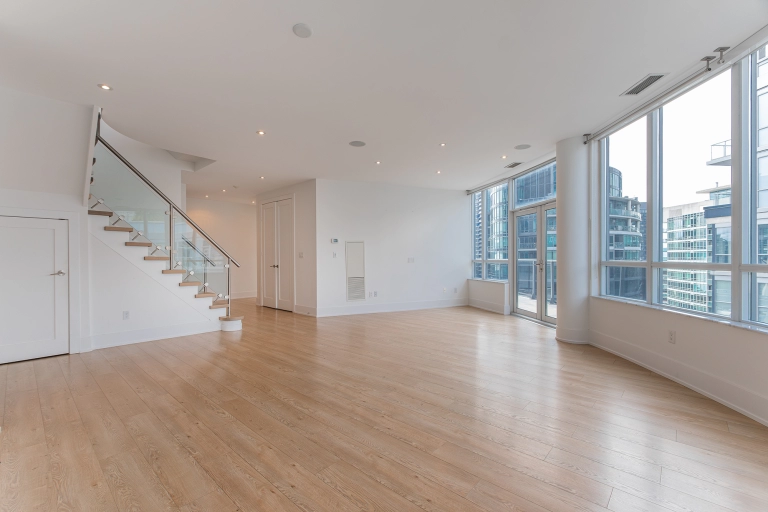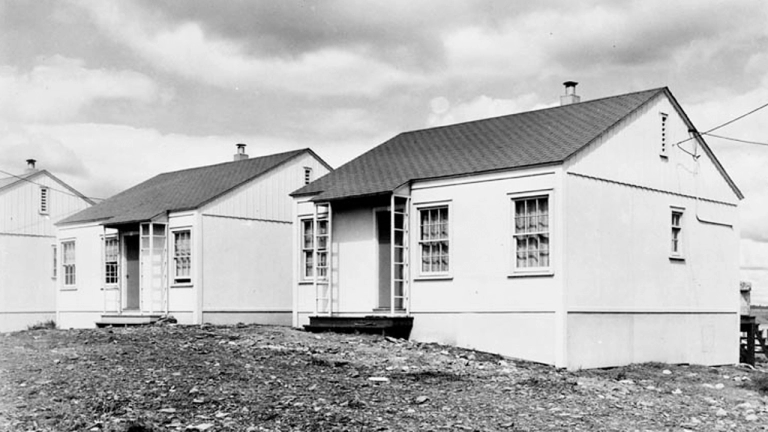The best time to buy real estate was yesterday. The second best time to buy real estate is today.
This is probably an old saying you’ve heard time and time again, but how valid is it? In actual fact, the best time to buy a house is at the personal discretion of the buyer as everyone’s life is different and the need for finding a home varies from person to person.
Although this may seem like an indirect answer avoiding the question, the honest fact is it’s true. There are many factors that go into whether or not now is the right time to buy a house which I’ll discuss in further detail below.
Personal factors and current market conditions are two main pillars you need to analyze in order to come to an accurate decision. It’s a balancing act between the two to find the perfect time to buy a home.
If you focus too much on personal factors, you’ll end up buying a home driven by emotions which can result in buyer’s remorse. On the other hand, if you’re trying to time the market by waiting until all market conditions align to a “perfect market”, you might find yourself wishing you had bought sooner as the real estate market might have gone up and is now out of reach.
Personal Factors To Consider When Deciding When To Buy A House
For starters, let’s take a look a personal factors that may impact your need to buy a house.
More often than not, when balancing out the personal factors vs. market conditions, personal factors will have unfair, yet natural bias where we will weigh the personal factors as more impactful than the market conditions. Be careful though, you don’t want to give too much power to the personal factors as you begin to get too emotionally invested in the home buying journey. Buying real estate, as much of a life goal it may be, is still a business transaction.
Growing Family
If you’re starting a family with a baby on the way and are currently living in a one bedroom condo with your partner and a dog, you’re limited on the space and will be forced to up-size to accommodate your growing family.
Regardless of the real estate market, your personal needs for buying a house supersede the conditions of the market. If you’re lucky, you may be able to wait out the market for 12 – 24 months, but after that you’ll begin to feel the constraints of living in a small condo and will need to move.
Work
If you’re in a senior role at a growing company, it’s not rare to find yourself being asked to relocate to new cities, provinces or even countries to help facilitate the growth of the company into new markets.
Additionally, you may be in a position that requires you to travel quite frequently. In situations like this, you might be better off renting to reduce the costs over the long-run such as up-keep of the property, property taxes and so forth.
Lifestyle
As nice as it may be to have your life planned for the next 5, 10 or even 20 years, the reality is, not many of us do and that’s ok!
Especially for young home buyers, who knows if where you’re currently living is where you’ll want to settle and plant roots. Buying real estate is a huge commitment and anchor in the area you’re living.
Are you the type of person who wants to travel the world for 6 months at a time or perhaps live abroad but are contemplating buying a house because everyone your age is doing so?
Don’t fall into this trap.
Life is lived at your own pace. Don’t compare your real estate journey to others. Think hard and realistic on where you see yourself. If you don’t see yourself living in the same area for more than two years, perhaps renting is the better option for now.
If you analyzed your personal factors and don’t believe they will impact your need or urgency to buy a home, there are housing market conditions you can use to help analyze whether 2022 is the right time to buy a house.
Current Housing Market Conditions
If the above personal life factors are not ones you need to consider in your home purchasing venture, then you can use market indicators to help arrive at an educated conclusion. For 2022, I’ve highlighted four key areas I believe should be address that will help you weigh whether or not you should buy a home this year.
Interest Rates Are Going Up
As we navigate the fallout of COVID-19 and rising inflation rates, interest rates are coming back to pre-COVID rates and reaching even higher. Throughout the pandemic, Canadians have come to know one of Canada’s lowest ever interest rates bottoming out at a surprising 0.25%!
It was practically free to borrow money.
As of the time of writing this article, Canada’s key interest rate is currently sitting at 2.5%.
But what does this mean for mortgage rates?
Changes in policy interest rates set out by the Bank of Canada lead to similar changes in short-term interest rates. These include the prime rate, which is used by the banks as a basis for pricing variable-rate mortgages.
With the key interest rate on the rise, banks are going to start increasing their mortgage rates. This means it becomes more expensive for you to borrow money. Let’s do the math real quick.
For simplicity, we’ll keep the main variables the same. The purchase price of a condo will be $500,000 with a downpayment of 20% ($100,000) amortized over 25 years with a 5 year term. Note – I’ve decided to use a downpayment of 20% to avoid factoring in the mortgage insurance. That means, the total amount you need to borrow is $500,000 – $100,000 = $400,000.
Now, during the middle of the pandemic, I’ve seen clients securing interest rates for as low as 1.5%. That means, on $400,000 with an interest rate of 1.5%, the monthly payment would be $1,599.
Now, let’s increase the interest rate to 2.5% – a 1% increase.
On $400,000 with an interest rate of 2.5%, the monthly payment would be $1,792. An increase of $193 a month!
This amount scales accordingly with the amount needing to be borrowed. With Toronto’s average home price currently sitting at $1,152,175 according to the Toronto Region Real Estate Board across all home types for the month of June, 2022 – this change in percentage can be a hefty amount.
But how does fixed-rate mortgages and variable-rate mortgages compare in today’s market?
Jacob Manishevitz, a mortgage broker servicing the Ontario marketplace, dives into further detail on whether or not you should go with a variable-rate mortgages or a fixed-rate mortgage.
Home Prices Have Plateaued & Starting To Decrease
In the earlier months of 2022, we’ve seen bidding wars driving the price of a home up anywhere from 10% – 30%!
Now that the market has cooled off, let’s take a look at the average home price for all home types in the city of Toronto for the course of 2022.
January 2022 – $1,072,383
February 2022 – $1,210,279 (+12.9% MOM)
March 2022 – $1,217,523 (+0.6% MOM)
April 2022 – $1,242,397 (+2.0% MOM)
May 2022 – $1,234,122 (-0.7% MOM)
June 2022 – $1,152,175 (-6.6% MOM)
When looking at the average price for all home types in the city of Toronto, the short-term looks bleak. A 6.6% decrease month-over-month may look bad, but when looking at the start of the year, we are still experiencing a 7.4% increase.
If you’re in real estate for the short-term flip, then yes, the current market conditions aren’t promising. But even with the market cooling off, if you purchased a home in January, you’d still be in the green.
If you’re comparing prices from only a few months back when the market peaked in April, then it may seem like you’re getting a great deal – a 7.3% savings (April 2022 vs. June 2022) but this short-termed logic isn’t the best methodology of calculating your success in real estate.
No matter which way you look at it, you can cut the pie to fit the narrative you want to believe. It’s up to your investment strategy to plan accordingly and determine what market conditions are suitable for you.
It's A Balanced Market
In real estate, we determine whether it’s a buyer’s market or seller’s market based on the sales to new listings ratio or SNLR for short.
A balanced market is when the SNLR ratio sits anywhere between 40% & 60%.
A buyer’s market is when the SNLR ratio sits anywhere below 40%.
A seller’s market is when the SNLR ratio sits anywhere above 60%.
Now that we know what ratio we need to determine the market condition, let’s take a look at June 2022 for Toronto based on all home types. Spoiler alert – the answer is in the section heading.
For June 2022, the average SNLR ratio for all home types in Toronto according to the Toronto Regional Real Estate Board was 40.4%. That means we are currently experiencing a balanced market. In fact, we might even see a buyer’s market for the first time in awhile during the month of July.
For those thinking it’s currently unfair for buyers, you can’t blame it on it being a “seller’s market”, because it isn’t. Although it may seem like it, according to the sales to new listings ratio, we are sitting in a balanced market.
Homes Are Selling Quickly
Throughout my career in real estate, I’ve seen the days on market (DOM) of a listing reach 25+ days on average. On the other hand, I’ve also seen homes sell on average in less than a week!
But where are we in June 2022?
For clarification, a home is considered sold and no longer on the market when a firm and binding offer has been signed and accepted by both parties with no outstanding conditions.
In June 2022 for all home types in Toronto, the average DOM was 16.
Now, is this a crazy fast amount of time for a home to sell? Probably not if we’re basing it off what we’ve seen in the media over the past few months. But, throughout the entire history of real estate, 16 days on the market is pretty fast.
This equals to probably 1 week and a bit of showings at most and approximately 3 days to fulfill a condition. Although this is hypothetical, it’s a situation that has probably happened here or there over the past month.
If you miss out on putting in an offer within the first week of a home going on the market, more than likely, an offer is already in the works.
Conclusion: Should I Buy Real Estate In 2022 Or Wait Till 2023?
If you can afford the means to buy a house now, do it. From my experience and based on the stats pulled from the Toronto Regional Real Estate Board, we are sitting in a fairly balanced market.
If you were already planning on buying a home in 2022 and waited to get over the hump of April, then you’ve probably done yourself a great benefit by saving a premium on home prices. But this then leads to the question, what about 2023?
Unfortunately, I don’t own a working crystal ball. If I did, I probably wouldn’t be writing this article. But, if interest rates do continue to rise, I can see home prices levelling off a bit more. Are we going to see major reductions of up to 30% – 50%? Probably not. Nevertheless, we should stay in touch. If you’re looking to work with an experienced Mississauga real estate agent, contact me today.


